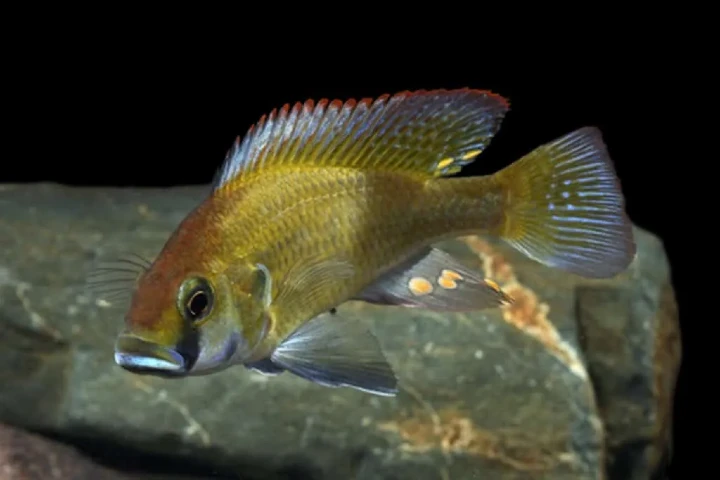

The female cichlid fish or the Central African fish protects her eggs and offspring in her mouth to protect them from predators (Pic. Courtesy fishkeepingfolks.com)
Mothers can go to any extent to take care of their eggs and young ones. Citing an extreme case, a smithsonianmag.com report talks about female cichlid fish or the Central African fish who carry the eggs and babies in their mouth for two weeks. While guarding them against predators, these fish – found in Lake Tanganyika and parts of Rwanda, Tanzania, Zambia and Burundi — end up eating some of these eggs and offspring!
Talking about this study revealing cannibalism and published in Biology Letters, James Ashworth of London’s Natural History Museum said that the reason why mother eats her offspring is to check the damage to the cells that takes place due to mouthbrooding.
The study’s co-author Peter Dijkstra who is Central Michigan University’s biologist told New Scientist: “The females are gaining something from [eating their young], not just in terms of body condition, but even something that could potentially boost their health.”
Bringing up the offspring is tough especially in physical terms for this fish, also called Astatotilapia burtoni, as they are unable to breathe properly or eat.
The research Karen Maruska, a biologist from Louisiana State University who focuses on A. burtoni, observed, “adds an interesting piece to the puzzle of how these mouthbrooding females are able to survive and maintain their own health during the two-week brooding period when they can’t eat.”
What this African fish does is not something exceptional as there are other species too who practice what is called “filial cannibalism”. Male barred-chin blenny, a fish found in Asia and common goby fish munch who live in Atlantic and Baltic Sea coasts Europe and northern Africa, also eat up some eggs. So do guppies – tropical fish – which are widely distributed as well as some species of birds, insects, amphibians, reptiles and mammals also indulge in this act.
Initially cannibalism was not the focus of the study as the scientists were looking at how mouthbrooding impacts the female A. burtoni’s health. Dijkstra and his colleagues found in 2019 that the mother fish produced chemicals that adversely affect the cells during the mouthbrooding period.
For their research, the scientists studied more than 60 female A. burtoni of which 50 per cent were mouthbrooding while the other were not as their eggs had been removed. Following two weeks of the experiment, it was discovered that 29 of the 31 mothers who were mouthbrooding had a lesser number of offspring.
The scientists concluded that the missing offspring had been eaten.
Commenting on this, Jake Sawecki, the lead author of the study and Michigan State University researcher said: “They could have been dropping them, but I observed them every single day for hours and never saw that happen. The only really logical explanation was that they were consuming some of them.”
The researchers suggest that the fish during mouthbrooding have higher levels of reactive oxygen which harm the DNA and those who had more harmful chemicals ate more offspring. This helped them to counteract the ROS with antioxidants. The mothers thus got both nutrients and antioxidants.
Summing up the study, Sawecki said: “In the grand scheme of things, it’s probably more beneficial to eat some of those young and be able to reproduce again in the future, rather than to die after that reproductive cycle and only have produced X number of young.”
Also read: Why do wasp larvae become Cannibals feeding on their own?
Brazilian President Luiz Inacio Lula da Silva on Wednesday (local time) issued a firm response…
An earthquake of magnitude 4.4 struck Jhajjhar district in Haryana on Thursday morning, according to…
Prime Minister Narendra Modi on Wednesday received a standing ovation and non-stop applause from lawmakers…
Hailing the relations between India and Africa, Prime Minister Narendra Modi stated that the ties…
At a time when Operation Sindoor against Pakistan is still ongoing, India is looking to…
India and Namibia exchanged MoUs in the presence of Prime Minister Narendra Modi and the…